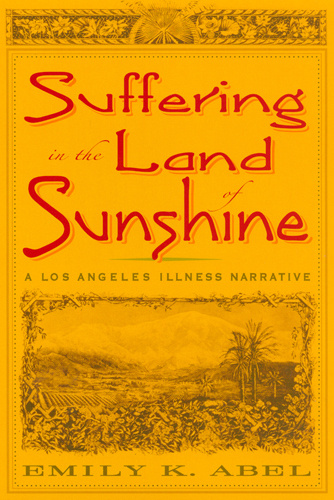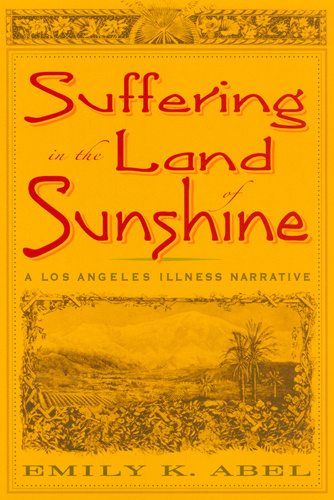Suffering in the Land of Sunshine
A Los Angeles Illness Narrative
The history of medicine is much more than the story of doctors, nurses, and hospitals. Seeking to understand the patient’s perspective, historians scour the archives, searching for rare personal accounts. Bringing together a trove of more than 400 family letters by Charles Dwight Willard, Suffering in the Land of Sunshine provides a unique window into the experience of sickness.
A Los Angeles civic leader at the turn of the twentieth century, Willard is well known to historians of the West, but exclusively for his public life as a booster and reformer. Willard’s evocative story offers fresh insights into several critical issues, including how concepts of gender, class, and race shape patients’ representations of their illness, how expectations of cure affect the illness experience, how different cultures constrain the coping strategies of the sick, and why robust health is such an exalted value in certain societies.
In Abel's hands, Charles Willard's illness narrative becomes both a patient's account of his experience with tuberculosis in the years before antibiotics, and a text that reveals the complex interaction between gender, race, class, and illness in the construction of an individual's sense of self.
Through the rich narrative of one man's encounter with tuberculosis, this book displays the difficulties and contradictions of living with a chronic disease, much of which can transcend the particular time and place to help us understand the individual and broader family and social experiences of living with illness.
In Abel's hands, Charles Willard's illness narrative becomes both a patient's account of his experience with tuberculosis in the years before antibiotics, and a text that reveals the complex interaction between gender, race, class, and illness in the construction of an individual's sense of self.
Through the rich narrative of one man's encounter with tuberculosis, this book displays the difficulties and contradictions of living with a chronic disease, much of which can transcend the particular time and place to help us understand the individual and broader family and social experiences of living with illness.
It is Abel's detailed and engrossing portrait of this suffering middle-class WASP in turn-of-the-century Los Angeles that most clearly reveales the ways in which public health practice and discourse actively constructed racial and class difference.
Though most obviously suited for courses in medical sociology or history, the compactness of the book, its accessibility and its emphasis on themes of gender, social class and the sociology of deviance make it a suitable candidate for inclusion in other courses as well. This is an illuminating portrait of suffering and a valuable contribution to the existing literature on the history and experience of tuberculosis in the United States.
"A real man again"
Boosting Los Angeles
Reforming Los Angeles
"The old trouble"
The "gash" in "our happiness"







